At ICFJ’s Tribute to Journalists 2023 on Nov. 2, ICFJ President Sharon Moshavi spotlighted five journalists from the ICFJ network who were watching the event online. “Thank you all for the important work that you do. You are the reason we are here,” Moshavi said.
The five journalists, Ana Carolina Araújo, Youssoupha Cissé, Nazek Elimlak, Rahul Samantha Hettiarachchi and Nick Toso reflect ICFJ’s global network of journalists, over 160,000 strong.
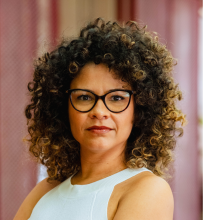
Ana Carolina Araújo
Ana Carolina Araújo of Salvador, Brazil, knew from a young age that she wanted to be a journalist. She studied journalism at the University of Bahia, completed a master’s degree and is currently earning her doctorate while working at AzMina, a nonprofit feminist digital magazine.
She is particularly proud of leading MonitorA, a project that tracked 200 state and federal women candidates in Brazil who have been victims of online political violence. The monitoring tool’s data supported several legal actions to combat gender-based political violence.
Also under her lead, the organization recently launched a newsletter focused on science dissemination. “Our proposal is to shift the focus away from the negative perspective, on women's difficulties in doing science, and address what they have already accomplished,” Araújo said.
Araújo said that the newsletter was born through Accelerating Digital Businesses, an ICFJ program in partnership with Meta and media associations in Brazil. Araújo presented the project for its launch at an ICFJ event in São Paulo, Brazil.
As a longtime subscriber of ICFJ’s newsletter, she was able to learn about courses and opportunities available. “ICFJ is a very rich professional and collaborative space for me, even though I participate in most activities online,” she said.
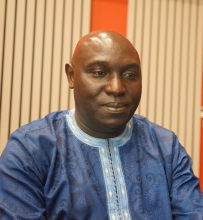
Youssoupha Cissé
Based in Dakar, Senegal, Youssoupha Cissé started his career as an English teacher. After being interviewed for news stories on issues such as violence, early pregnancy and school dropouts, he developed a passion for journalism.
After earning a journalism masters degree, Cissé worked at different Senegalese media outlets before starting A-Part Media TV, a digital outlet focused on mobile journalism.
His current project focuses on Lac Rose, a lake in Senegal known for its pink hue. Recently, rainwater from surrounding neighborhoods has caused the lake to lose its distinctive pink color, impacting tourism to one of the most visited sites in Senegal.
“Right now, there's only one thing on my mind: the survival of Lac Rose,” Cissé said. “I intend to make a lot of noise to get the government and the population to take the problem of Lac Rose head on, so that such a situation never happens again.”
ICFJ has supported Cissé through the African Regional Journalism Workshops, a program funded by the U.S. State Department’s Africa Regional Services. The program brought journalists from Africa together for sessions focused on equipping them with resources, tools and deeper knowledge on topics such as COVID-19 and disinformation. Through the trainings, Cissé learned how to utilize smartphones as tools for producing and disseminating information.
“ICFJ came to my aid just when I needed it most,” said Cissé. “It was a wake-up call for me, who didn't know much about digital.”
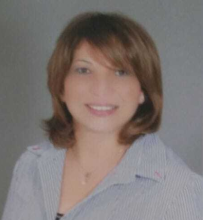
Nazek Elimlak
Based in Tunisia, Nazek Elimlak works as a media officer in the National Office of Handicrafts. Prior to this position, Elimlak spent years as a journalist for Arabic-language newspaper Al-Hurriya as well as on national television.
Elimlak earned a certificate in data journalism through an ICFJ program in partnership with the Media Development Center in Tunisia. Through her fellowship, she worked on an investigative report about the impact of pollution from a mine in a northeastern Tunisian village.
“I had a distinguished experience at the International Center for Journalists, and it benefited me greatly in my journalistic career as an addition to me as a journalist,” Elimlak said.
She is interested in continuing her training, now focusing on mobile journalism. “I hope to have other experiences at the International Center for Journalists and to complete many articles and investigations, whether written or photographed,” she said.
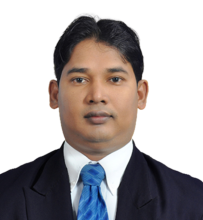
Rahul Samantha Hettiarachchi
Rahul Samantha Hettiarachchi is a freelance journalist from Sri Lanka who started reporting for a business newspaper in 2005.
“I am drawn to the challenge of journalism,” Hettiarachchi said. “It is not always easy to get the story, and it can be dangerous to report on sensitive topics.” Through leadership positions at regional journalism associations, he has conducted over 100 training sessions for journalists and is currently working on establishing a “right to information” help desk for journalists based in the south of Sri Lanka.
One of Hettiarachchi’s most impactful stories was an investigative report covering wild elephants dying of malnutrition at Sri Lanka's Horowpathana Elephant Reserve. Following the publication of his report, the government stopped bringing wild elephants to the reserve, he said.
Hettiarachchi says that he’s benefited greatly from ICFJ’s support through two programs focused on investigative reporting and financial forensics. “Both of these programs have helped me to grow as a journalist in several ways,” he said. “I have learned new skills, expanded my knowledge base, and built a network of supportive colleagues.”
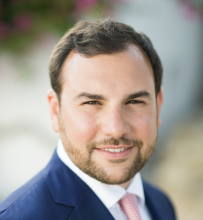
Nick Toso
Nick Toso of Los Angeles worked for Voice of America and CNN en Español before founding Rolli, a platform that empowers journalists through resources, research and information on experts, events and stories to cover.
Toso and his team at Rolli are dedicated to empowering journalists through cutting-edge technology and resources like a database of experts and ideas for what to cover. The team’s work has increased newsgathering rates while simultaneously combating disinformation.
“We're able to support journalists in this way thanks to our partnerships and support from key journalism institutions,” Toso said.
As part of Leap, ICFJ’s news innovation lab, Toso came together with Zhouhan Chen, the founder of Information Tracer, to develop a misinformation detection tool for journalists. It harnesses the power of AI to detect suspicious narratives, patterns and coordinated campaigns on social media, showing journalists how information is growing and spreading.
“The support from ICFJ, particularly from their Leap innovation lab, has been instrumental in Rolli’s growth and international expansion,” Toso said. “ICFJ's mentorship has been pivotal in developing a product that upholds the trust and integrity of journalism in the age of AI.”